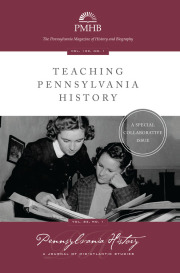Political Antislavery Discourse and American Literature of the 1850s by David Grant
Main Article Content
Abstract
Dr. Martin Luther King Jr. wrote from an Alabama jail cell that the “great stumbling block” to African American freedom was the “white moderate” who “prefers a negative peace which is the absence of tension” over “a positive peace which is the presence of justice.”1 David Grant reveals that antislavery authors wove a parallel argument into texts calculated to jolt northern readers out of demeaning compliance with proslavery compromises, and into the Republican Party. This is not a comprehensive study of political antislavery discourse. But Grant contributes to the growing scholarship on the popular, and arguably more effective, strands of antislavery activism that flourished in the 1850s. Historians such as eric Foner, Richard H. Sewell, Michael D. Pierson, Jonathan earle, and James Oakes have underscored the important contributions of nonabolitionist opponents of slavery. This book highlights the literary effort that helped transform the Republican Party into a vehicle for antislavery politics.
Article Details
Pennsylvania History is the official journal of the Pennsylvania Historical Association, and copyright remains with PHA as the publisher of this journal.
